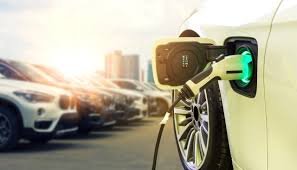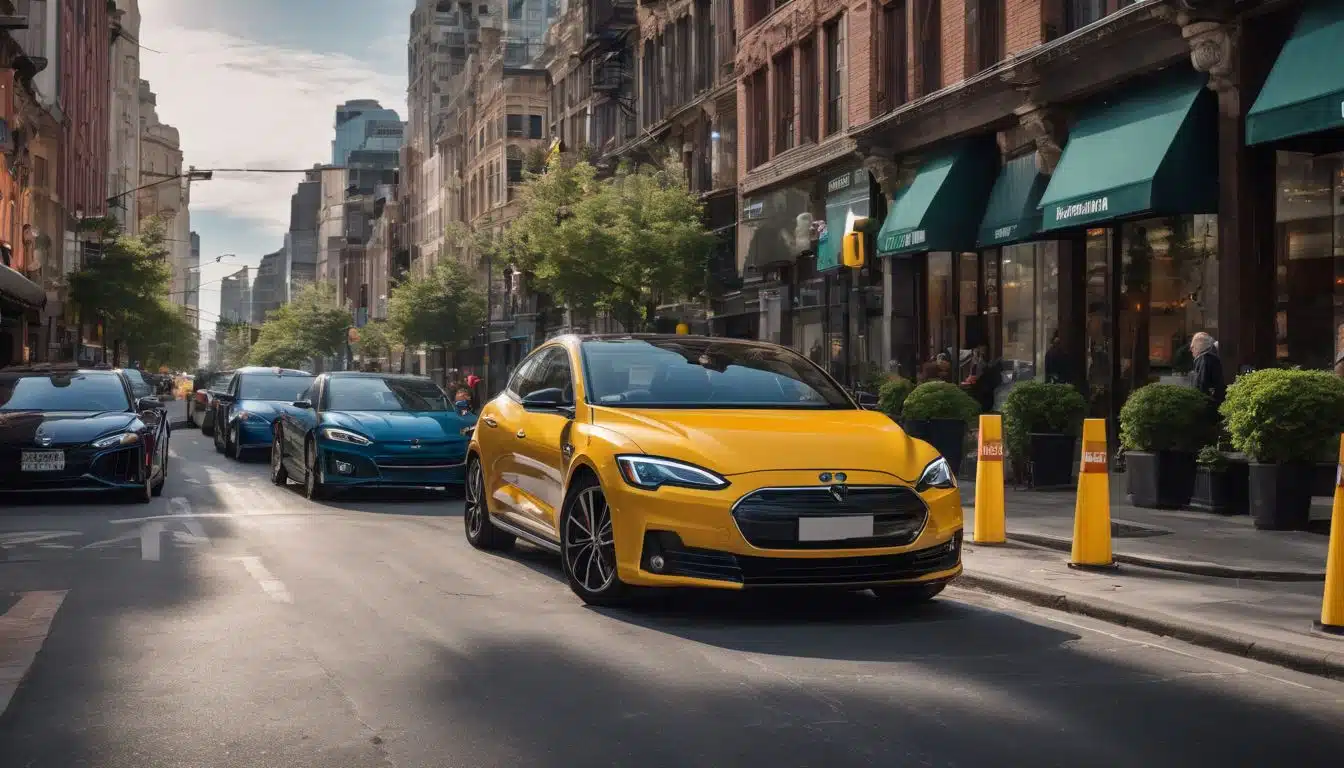Electric vehicles (EVs) are quickly becoming a key part of urban transportation. As cities around the world face growing challenges such as traffic congestion, pollution, and limited space, electric vehicles offer solutions that promote cleaner, more efficient, and sustainable urban mobility. In this post, we’ll explore the many benefits that electric vehicles bring to urban areas, including their environmental, economic, and societal advantages.

Reduced Air Pollution
One of the most significant benefits of electric vehicles in urban areas is their ability to reduce air pollution. Unlike traditional gasoline or diesel-powered cars, EVs produce zero tailpipe emissions. This means no harmful pollutants such as nitrogen oxides, particulate matter, and carbon monoxide are released into the air. In urban environments, where air quality is often compromised due to high traffic volumes, EVs help improve overall air quality and reduce the negative health effects associated with air pollution. As more people adopt electric vehicles, cities can experience cleaner air and healthier living conditions for their residents.
Lower Noise Pollution
Electric vehicles are much quieter than conventional vehicles, which helps to reduce noise pollution in urban areas. In busy cities, constant noise from traffic can be a major source of stress and discomfort for residents. EVs, with their electric motors, operate with significantly less noise, especially at lower speeds. This reduction in noise pollution leads to a more peaceful and pleasant urban environment. Less noise also means improved public health, as excessive noise has been linked to increased levels of stress and sleep disturbances.
Decreased Traffic Congestion
Electric vehicles can contribute to reducing traffic congestion in urban areas. Many modern EVs are smaller and more compact than traditional vehicles, which means they take up less space on the road and in parking lots. Additionally, the quiet operation of electric vehicles allows for smoother, more efficient traffic flow, especially in busy city centers. Some cities also encourage the use of EVs by offering designated lanes or preferential parking spots for electric cars. By reducing the overall number of larger, gas-powered vehicles on the road, EVs can help alleviate congestion and make city commutes more efficient.
Cost Savings for Cities
Electric vehicles offer long-term cost savings for urban areas. While the initial purchase price of an EV can be higher than that of a traditional car, the operating costs are much lower. EVs require less maintenance, as they have fewer moving parts and don’t need oil changes. Additionally, the cost of electricity is typically lower than gasoline, making charging an EV more affordable than refueling a conventional vehicle. In cities, these savings can add up significantly, especially when it comes to public transportation and government fleet vehicles. Over time, municipalities can save money on fuel and maintenance by adopting electric vehicles in their fleets.
Reduced Dependence on Fossil Fuels
Electric vehicles help reduce dependence on fossil fuels, which is particularly important in urban areas. Cities are often heavily reliant on gasoline and diesel for transportation, contributing to the demand for oil and the environmental problems associated with fossil fuel use. EVs can be power from renewable energy sources, such as solar or wind power, which reduces the need for fossil fuels and decreases the carbon footprint of urban transportation. By shifting to electric vehicles, cities can promote energy independence, reduce the impact of volatile fuel prices, and encourage the use of cleaner energy sources.
Improved Health and Quality of Life
By reducing air and noise pollution, electric vehicles contribute to better public health outcomes in urban areas. Poor air quality in cities is linked to respiratory illnesses, cardiovascular diseases, and other health problems. With fewer harmful emissions from vehicles, EVs can help reduce the number of asthma attacks, heart conditions, and other pollution-related diseases. In addition, quieter streets can lead to less stress and better sleep quality for urban dwellers. Overall, the adoption of electric vehicles improves the quality of life for residents by creating a cleaner, quieter, and healthier environment.
Sustainable Urban Mobility
Electric vehicles are key to building a more sustainable urban transportation system. As cities grow, the need for efficient, eco-friendly transportation solutions becomes even more important. EVs are a crucial part of the shift toward sustainable urban mobility, as they offer an environmentally friendly and energy-efficient alternative to traditional vehicles. In addition to EVs, cities can integrate other sustainable transportation options, such as electric buses, bikes, and scooters, to create a comprehensive, eco-friendly transportation network. By investing in electric vehicles, cities can pave the way for a more sustainable, low-carbon future.
Integration with Smart City Technologies
The future of electric vehicles in urban areas has close ties to the development of smart city technologies. As cities become more connected through the Internet of Things (IoT), electric vehicles can be integrated with smart infrastructure to improve efficiency and convenience. For example, EVs can communicate with charging stations to optimize charging times and reduce wait times for drivers. Additionally, smart traffic management systems can coordinate with electric vehicles to improve traffic flow and reduce congestion. As urban areas adopt more advanced technologies, the potential for EVs to integrate with smart city solutions will further enhance their benefits.
Conclusion
Electric vehicles offer a wide range of benefits for urban areas, from reducing air and noise pollution to decreasing traffic congestion and promoting sustainability. As cities continue to face challenges related to pollution, energy consumption, and urban mobility, EVs provide a promising solution for cleaner, more efficient transportation. By investing in electric cars and supporting the development of charging infrastructure, cities can improve the health, well-being, and quality of life for their residents while reducing their environmental impact. The future of urban transportation is electric, and the benefits are clear.










